What was that? Summer 2021? Done? It’s still going on here as I am on an actual holiday and doing fun stuff like getting new spectacles for my face and a new electrical panel for the basement. Wooot! This is the dream and I am livin’ it. I even had 330 ml of a 3.8% beer yesterday and watched a Netflix show about the Korean buckwheat noodle dish naengmyeon, as recommended by DSL.* Both a drinking and then hangover dish apparently. Now I know why my buckwheat noodles suck. I didn’t immediately rinse and rub them in ice water. And, yes, a hundred other reasons. Never again. Probably. Maybe.
First off, it was good to read “The Ancient Magic of Malt: Making Malt Sugars and Ale from Grain Using Traditional Techniques” by sometimes reader Merryn Dineley in the journal EXARC.net,* 2021 (vol 2) who set the record straight:
This paper is presented as a historical narrative as well as being an explanation of basic ‘mashing in’ techniques. I aim to tell the story of the development of my understanding of how to make malt and malt sugars from the grain. I have learned from other experimental archaeologists, from ancient technologists and brewing scientists as well as from ethnographic research and the study of traditional style malting, mashing and fermentation techniques. One of the common myths about the origins of beer thousands of years ago is that grain was perhaps left in a container, it got wet and, somehow, turned into beer. This is impossible. The conditions for making malt and malt sugars do not exist in this situation.
A bit later in time but still in the past, Rob Sterowski at “I Might Have a Glass of Beer” wrote about Epochal Barrel Fermented Ales, a brewery intent of brewing the old fashioned way:
Possibly the most erudite of Scottish brewers, Young deserted the world of academic philosophy to devote himself to a study of eighteenth- and nineteenth-century brewing literature instead, and Epochal Barrel Fermented Ales is the result. A skilled home brewer, he has set up his small brewery in Port Dundas to make beers influenced by the way it was done two hundred years ago. His beer is fermented with a multi-strain yeast, cleansed to rid them of excess yeast and then allowed to mature to completion in oak barrels with a handful of whole-cone hops. The finished product is naturally carbonated in the bottle.
 As Boak and Bailey noted, suggestions that the #MeToo and #BLM movements’ efforts to expose craft beer’s ugly side have faded were found wanting with the news of an open letter to England’s West Berkshire Brewery. You can click on the image to the right to read the complaints yourself. It is certainly one of the long failings of the drinking entertainment pleasure trade to address the piggish attitudes that go along with booze. So it is good to read that folk won’t be bullied to keep quiet when it comes to bigotry and harassment even if a lot of the privileged voices have wandered away.
As Boak and Bailey noted, suggestions that the #MeToo and #BLM movements’ efforts to expose craft beer’s ugly side have faded were found wanting with the news of an open letter to England’s West Berkshire Brewery. You can click on the image to the right to read the complaints yourself. It is certainly one of the long failings of the drinking entertainment pleasure trade to address the piggish attitudes that go along with booze. So it is good to read that folk won’t be bullied to keep quiet when it comes to bigotry and harassment even if a lot of the privileged voices have wandered away.
I wasn’t familiar with English comedian Sean Lock. He passed away this past week but I am glad to know he had a hobby.
Update: I failed in not mentioning “Empire State of Mind” by David Jesudason published in GBH (thereby upping their average significantly) who looks at IPA from the point of view of the “I” as in India:
My father’s love of empire, and his belief that Britain was a civilizing force, was mirrored in the drink he called his own: the India Pale Ale. Of all of his beliefs, this one was particularly confused. His friends were Lager drinkers, and his adoption of IPA was a way of pretending to be refined in the days before the craft revolution had taken hold. But where he saw a drink that was emblematic of genteel, colonial India, I see something very different: Owing to the beer style’s association with the East India Company and its brutality, I can’t help but think of bloodshed, oppression, and enslavement.
I noted that it was an parallel to “Britain’s Idyllic Country Houses Reveal a Darker History“, the recent NYer piece on England’s National Trust but also cause for reflection on my own family’s path. One side included servants at big houses like that of the Collins publishing family as well as a great-grandfather who was a Sgt Mjr British army out in the empire while the other side, displaced highlanders in Greenock, built the ships that shifted the sugar that came out of the colonial system. Many died young, many had lives of if not poverty then at best modesty – with much drink caused troubles in industrial towns before many emigrated the hell out of there. If you have any doubt as to the way that IPA is code for empire consider this from that NYer article:
“At the end of the day, we went to a very, very, very rich country and transferred a lot of its wealth to this country, by trade, entrepreneurship, and looting,” Dalrymple said. In 2003, Angus Maddison, a British economist, calculated that India’s share of the global G.D.P. went from 24.4 per cent to 4.2 per cent during two and a half centuries of colonial rule. In 1884, the British state had a total income of two hundred and three million pounds, of which more than half came from its overseas territories, including seventy-four million pounds from India. Taxes were levied across the world and sent to burnish the metropole.
Good for someone to finally point out in depth the obvious issue with IPA as a placeholder for good beer. Might as well brand US craft lager Berghof.
Note: craft.
One of Canada’s few pre-Confederations tavern/inns/hotels, the Queen’s Inn, is up for sale in my fair town. I wrote about it in 2004 when it was just 165 years old and I was only 41: and is ripe with history and charm:
…he remembers one particular customer who continued coming in until he was in his 80s. The gentleman, Mitchell recalled, was blind and had a booming voice. “Give him two drafts,” the bartender told the younger Mitchell. “We just put the price up to 50 cents. Have fun.” “I didn’t know what he meant. I put the two beers down and said, ‘That’ll be 50 cents.’” “Forty-five is all you’re getting,” the man bellowed back.
Another pandemic affected business. And, on that theme, Josh Noel pointed me in the direction of the tale of overzealous expansion which ended in the collapse of Ale Asylum of Madison, Wisconsin:
Dilba said the pandemic “didn’t help” the business but added, “there were other extraneous factors, which I won’t get into, but the pressure applied by the pandemic was significant. And we’re not alone in that. Everybody in this world is in this fight together that really made moving forward very difficult.”
Factors cited elsewhere in the article include too many local beers, too many out of state beers in local bars and rent increases. Maybe also it’s because Americans are just drinking less, according to VinePair or, rather, the authors of the polling study they echo:***
Sixty percent is down nearly five percent from 2019. It’s down even more compared to 2010, when 67 percent of U.S. adults replied “yes” to the survey. There seemed to be a shift in drinking habits from 2019 until now. The average number of drinks per week (3.6) dropped to its lowest since 2001. Additionally, men (63 percent) reported drinking at a higher rate than women (57 percent).
Good reason to find another career than drinks writing! One person who does not care is likely Sister Doris Engelhard, the brewing nun in Germany whose story as told by NPR was the retweeted topic of the week:
“I only brew beer that I drink myself, so if the other sisters want to drink a wheat beer, they’ll have to buy it themselves,” she says. She also waves away any question about the intersection of her faith and her beer. “Beer is part of the Bavarian soul. If you’re not happy with yourself, you won’t be happy in a cloister,” she says. “And eating and drinking are part of that life. It’s not about being pious. All I need to do is believe in a higher power that accepts me as I am.”
Speaking of good stories about good outcomes, the BBC reported this week on the life of Cesar Kimbirima, a child soldier in Angola who found himself left for dead, now running a Wetherspoons pub:
…as the sky started spinning, and his consciousness faded to black, he thought it was over. His life would end in the long grass, while his blood poured into the dry Angolan earth. More than 20 years later, that dying soldier pours pints at the pub he manages in south London. As he chats to punters, and waves to babies in prams, there is no hint of Cesar Kimbirima’s former life.
There. That is it for now. Not sure if there will be an edition next week as I am driving to the sea. We will see. During these last lazy days, for more check out the updates from Boak and Bailey mostly every Saturday and (if I dare say) from Stan mostly every Monday, plus more with the weekly Beer Ladies Podcast, at the weekly OCBG Podcast on Tuesday and sometimes on a Friday posts at The Fizz as well. There is a monthly sort of round up at The Glass. There is more from the DaftAboutCraft podcast, too. And the Beervana podcast. And sign up for Katie’s weekly newsletter, The Gulp, too. And check out the Atlantic Canada Beer Blog‘s weekly roundup. Plus follow the venerable Full Pint podcast. And Fermentation Radio with Emma Inch. The AfroBeerChick podcast as well! And also look at Brewsround and Cabin Fever. And Ben has his own podcast, Beer and Badword – when he isn’t in hiatus as at the mo, more like timeout for rudeness! And remember BeerEdge, too, and The Moon Under Water.
*who once posed as me just to be nearer Lars.
**an archaeological foundation of some sort out of The Netherland with an address on the fabulous street, Frambozenweg!
***Hah! I’m one to talk.

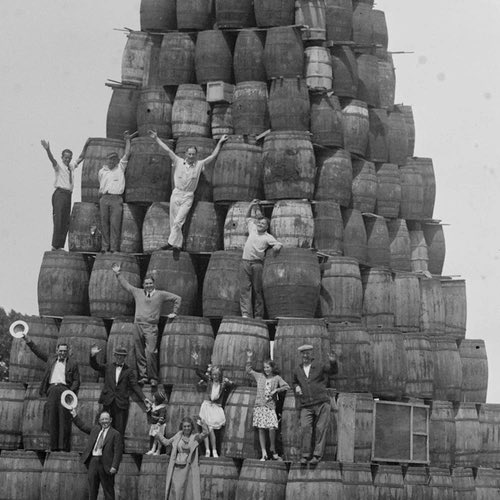




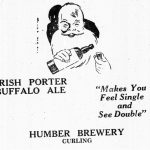


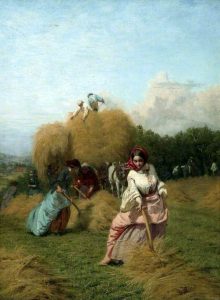
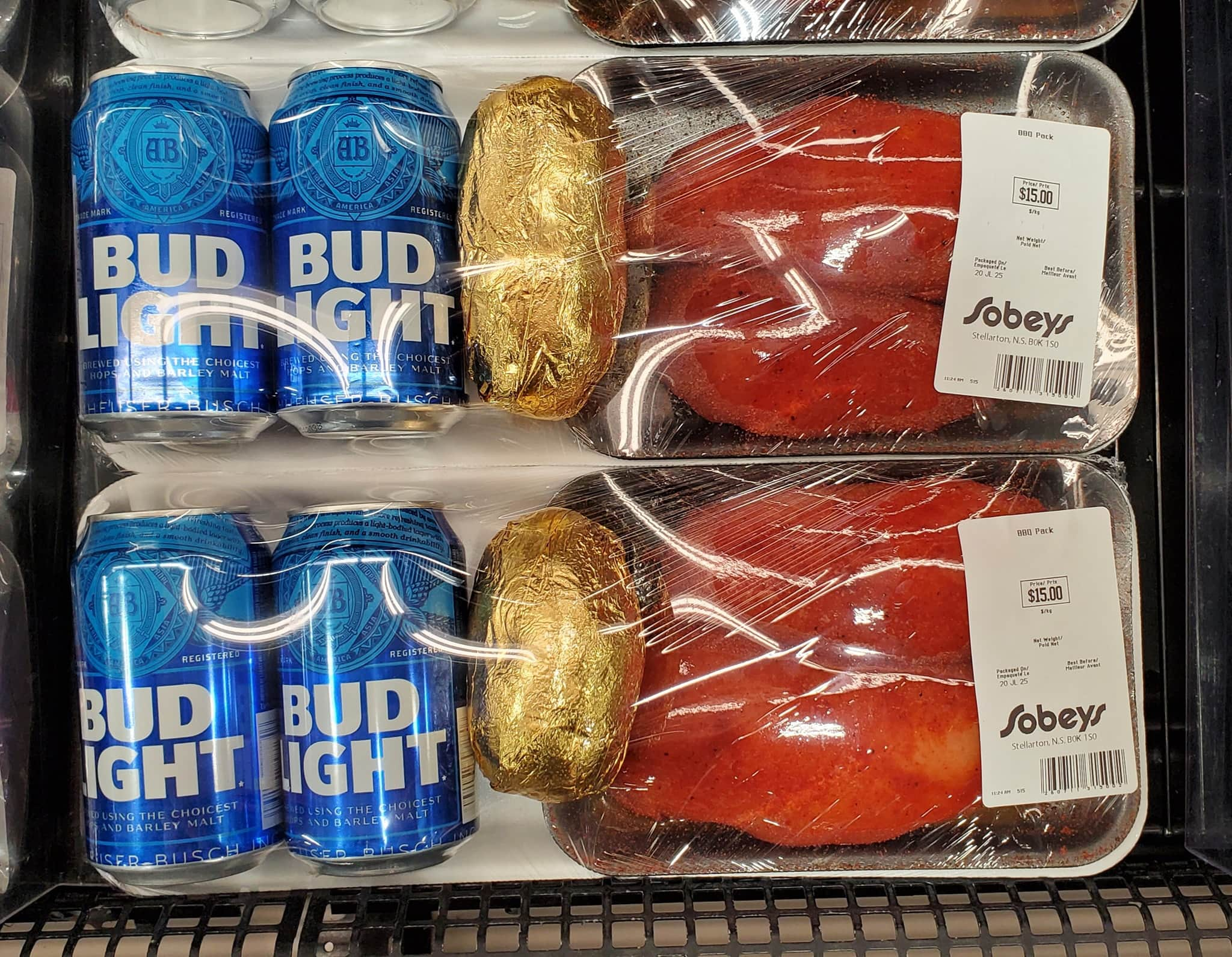
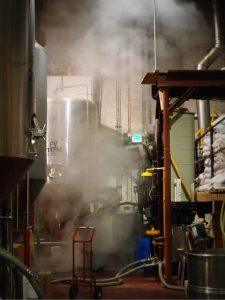 Yuletide. Its been busy so far this month but after one last late evening meeting for work tonight I think I might be sliding into Yule proper. As I mentioned a few weeks ago, the days of the Christmas Yuletide Hogmanay Kwanzaa and Hanukkah Beery photo contest may be well past us but the archives go on and on. To the left is
Yuletide. Its been busy so far this month but after one last late evening meeting for work tonight I think I might be sliding into Yule proper. As I mentioned a few weeks ago, the days of the Christmas Yuletide Hogmanay Kwanzaa and Hanukkah Beery photo contest may be well past us but the archives go on and on. To the left is 

 I resemble that remark myself. And I even went to yet another bar this week. I never go to bars but last Friday for one at the
I resemble that remark myself. And I even went to yet another bar this week. I never go to bars but last Friday for one at the